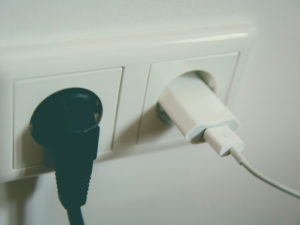Question Your Expectations of Comfort
Questioning expectations of comfort is all about realizing that the standards we’ve come to expect are not essential to livable or even comfortable conditions. No one expects you to live in extremes—to never turn on your air conditioning, fans, radiators, space heaters, etc.—but have you thought about what kind of comfort you expect or about how flexible those expectations might be?
A lot of standards for heating and cooling spaces are outdated. For example, did you know that temperature standards for office buildings function under the assumption that most of the people working in them are wearing three-piece suits? This comes from a time where such business attire for men was standard, However, as professional expectations and fashion styles change, especially with significantly more women in professional settings, this three-piece suit model leads to buildings being over air-conditioned to achieve the standard of comfort. It’s time to challenge these standards and create more sustainable ways to live and work in our environments. You can start by changing your personal standards of comfort in your own home or place of work and make appropriate changes.
A lot of small actions can significantly reduce the energy load of your home. Notice the way air flows through your space. Open windows that keep air flow and ventilation high to naturally cool your space, instead of relying on an air conditioner or fan. Keeping the blinds closed on southern/western facing windows can also keep your home cooler by preventing the strong sun from these directions from heating your home too much. When you feel a little cold while sitting on your couch in the winter, does it make more sense to get up and turn up the heat or to just throw on a blanket or a sweater? We all want to be comfortable in our homes and spaces, however, we also have a responsibility to take care of our planet. Evaluating what you genuinely need to live in your home can increase the efficiency and reduce the energy load of your home, which helps the environment and your wallet.
For more information on how to evaluate and change your expectations of comfort, check out this source:
Did you take this action? Report it!
Help us show our collective community impact by reporting that you took this action.




